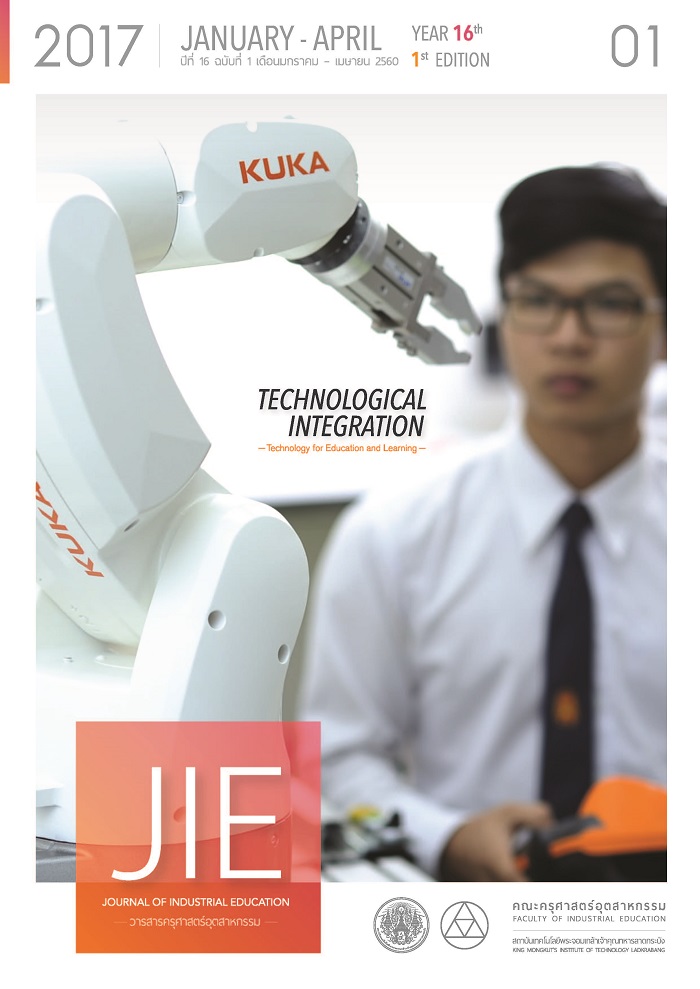DEVELOPMENT OF AN INSTRUMENT AND INDICATORS OF EARLY CHILDHOOD CENTER DIRECTORS’ CHARACTERISTICS IN MUSLIM COMMUNITIES IN BANGKOK
Main Article Content
Abstract
The purposes of this research were to 1) investigate the desired characteristics of early childhood center directors in Muslim communities in Bangkok and 2) develop the instrument and indicators for measuring the characteristics of early childhood center directors in Muslim communities in Bangkok. The study was divided into 2 phases. The first phase was conducted qualitatively with group discussion and in-depth interview from the key persons including 6 early childhood center directors and 18 representatives of teachers and representatives of early childhood center administrative officers. The collected data were examined using Triangulation Check and Content Analysis. The second phase was conducted quantitatively using the questionnaire developed from the collected data in the first phase as an instrument and indicators of early childhood center directors’ characteristics in Muslim communities in Bangkok with its content validity is 0.98. The questionnaires were distributed 2 rounds to 150 directors and teachers of early childhood centers in Muslim communities in Bangkok. The data then were analyzed through Exploratory Factor Analysis and Confirmatory Factor Analysis with the first order using statistical packages.
The results were as follows : 1) there were 26 variables of desired characteristics of early childhood directors in Muslim communities in Bangkok, 2) the exploratory factor analysis showed that only 25 variables were classified and divided into 4 factors namely Behaviors (beh), Organizational Development (dev), Knowledge (know) and Leadership (lead). These four factors were then examined using the confirmatory factor analysis and it was found that as the first order confirmatory factor analysis, the model was consistent with the empirical data which yielded a Chi-square of 0.54 at a degrees of freedom of 1 (Chi-Square = 1.19, df = 1, p = 0.27).
Article Details
"The opinions and contents including the words in papers are responsibility by the authors."
"ข้อคิดเห็น เนื้อหา รวมทั้งการใช้ภาษาในบทความถือเป็นความรับผิดชอบของผู้เขียน"
References
[2] Freud, S. 1965. The Origin and Development of Psychoanalysis. Chicago: H. Regnery Co.
[3] Office of Community Development Bangkok. (2002). Early Childhood Centers in Communities, Guidelines for management development of early childhood centers. Bangkok
[4] Japakeya. I. 2006. Educational Philosophy in Relation to Culture and Community retrieved from https://www.gotoknow.org/posts/39690 : Conference on Academic Market Projecton 28 February 2006.
[5] Saleemad, K. 2015. Leadership Competency for Islamic School Leaders. International Journal of Humanities and Management Sciences (IJHMS). Volume 3, Issue 2 (2015) ISSN 2320–4044 (Online).
[6] Seesant, B. 2014. Factor Analysis of Servant Leadership’s Characteristics Under the Jurisdiction of Vocational Education Commission, Ministry of Education. Journal of Industrial Education.13(2), p. 58-65.
[7] Saleh, A. M. J. 2005. Education Leadership and Creativity: An Islamic Perspective. Amman: Dar El Falah.
[8] Aebed, A. 2006. A Study of Islamic Leadership Theory and Practice in K-12 Islamic Schools in Michigan. Dissertation. Department of Educational Leadership and Foundations, Brigham Young University.
[9] Santanapipat, C. 2010. Pilot Project of Management of Early Childhood Center in Municipal School 4 of Watsribuaban to Execellence. Journal of Graduate School of Rajabhat Walaialongkorn University. 3(2). p. 41-52.
[10] Po-ngern, T. 2015. Factor Affecting the Policy Implementation Success of Child Development Center in Baungyitho Municipality, Thanyaburi District Pathumthani Province. Journal of Graduate Study Rajabhat Suansunandha. 2(2), p. 320-328.

